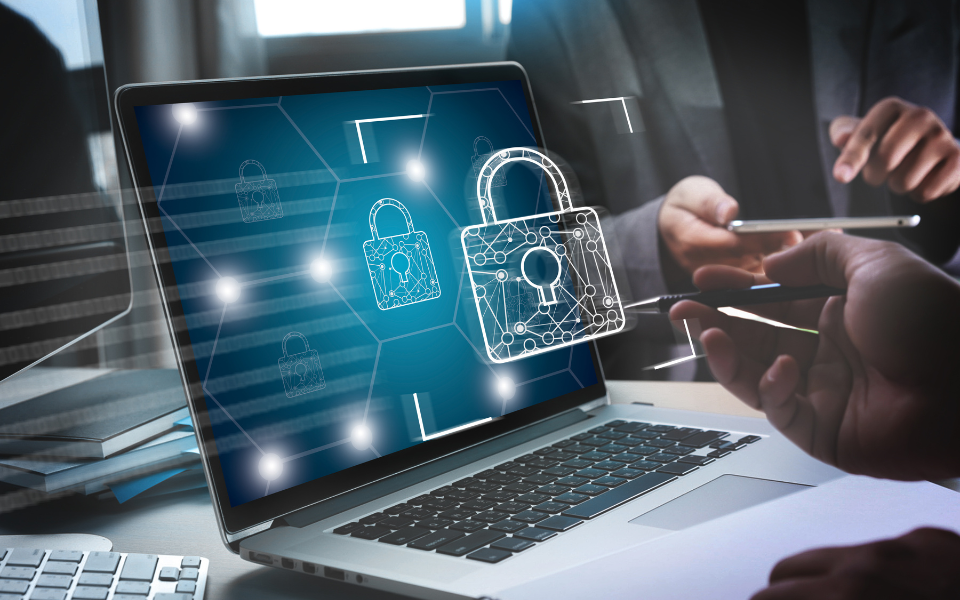Let’s face it—most of us would rather focus on growing our business than obsess over cyber threats. Cybersecurity feels like flossing for your organization: you know it’s important, but it’s not exactly exciting. It’s the thing we promise to “get serious about next quarter.” But here’s the uncomfortable truth: in the modern digital world, cybersecurity isn’t optional—it’s foundational.
And while it’s tempting to ignore until something goes wrong, those who lead resilient, future-ready organizations take a different path. They shift from avoidance to proactive engagement. They don’t wait for the fire—they install the smoke detectors early.
Why Cybersecurity Matters (Even When Nothing’s Going Wrong)
Cyber attacks rarely start with a bang. They often begin in silence—a spoofed email, a weak password, a neglected software update. But when they strike, they can knock out operations, tarnish reputations, and drain resources faster than most leaders expect.
It’s not just big companies that are vulnerable. In fact, small and mid-sized organizations are increasingly targeted because they’re perceived as easier prey. Yet those that survive—and thrive—treat cybersecurity as a living part of their strategy, not an afterthought.
Let’s break down what they do differently.
1. They Reframe Cybersecurity as a Driver of Trust
We often talk about protecting “data” as though it’s just code and files. But what’s really at stake? Client confidence. Team safety. Business continuity.
Cybersecurity is ultimately about protecting your people and your promise. When you secure your systems, you send a powerful message to your customers and staff: You can trust us.
2. They Build Habits, Not Hype
Security isn’t one heroic act—it’s daily discipline. Strong passwords. Two-factor authentication. Regular updates. Sound familiar? They should. These aren’t just IT tasks—they’re habits. And just like hitting the gym or meditating, the impact compounds.
Start by making the essentials automatic. Can’t afford fancy software right now? No problem. Use free tools, like Google Forms for risk surveys or built-in firewalls. Simplicity beats complexity when it comes to long-term consistency.
3. They Prepare for the Worst, Even on Good Days
The best time to plan for a cyber attack is before it happens. Risk assessments may sound dull, but think of them like annual checkups—they help you catch threats before they become disasters.
Ask yourself:
-
Who has access to sensitive data?
-
Are your backups up to date—and tested?
-
Do employees know how to spot a phishing email?
Organizations that do this well aren’t paranoid—they’re prepared.
4. They Empower, Not Overwhelm
Fear-based cybersecurity rarely sticks. What works better? Engagement. Education. Empowerment. Train your team not just in what not to do—but why it matters. Make them part of the solution.
In fact, your employees can be your first line of defense—or your weakest link. Which one they become depends on how you involve them.
5. They Invest in Resilience, Not Just Tools
Sure, firewalls and antivirus programs help. But real protection comes from resilience: how fast you respond, how clearly you communicate, and how well you recover.
That might mean hiring a cybersecurity consultant or outsourcing to a trusted partner. It might mean budgeting for that backup system you’ve been putting off. Either way, the return on investment is peace of mind—and long-term survival.
Why Cybersecurity in the Age of Digital Transformation is a basic need?
Here’s what’s exciting: when you build cyber readiness into your digital strategy, it fuels innovation—not fear. The companies that are leading in AI, automation, and cloud technology aren’t fearless—they’re secure. They move faster because they’ve built guardrails.
The same is true for you. Digital transformation is no longer a buzzword—it’s the operating system of modern business. But without cybersecurity, it’s like building a rocket with no heat shield.
Read Also:
Cybersecurity for Small Businesses: How to Safeguard Your Digital Assets
15 Expert Tips To Stay Safe Online
What are the Cloud security challenges and Solutions?
How to Secure Your Computer From Hackers?
What is Internet Safety? 7 ways to stay safe online
Best Free Antivirus Software In 2025
Conclusion:
Cybersecurity doesn’t have to be overwhelming. You don’t need to become an expert overnight. But you do need to care—and act. If you’ve ever felt intimidated by the jargon or unsure where to begin, remember: the best cybersecurity strategies don’t start with technology. They start with leadership. With awareness. With intention.
You don’t need to fear the future—but you do need to be ready for it. So the next time you’re tempted to put off that security update or skip employee training, pause.

